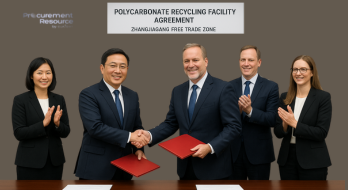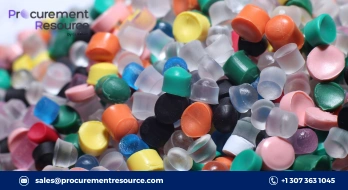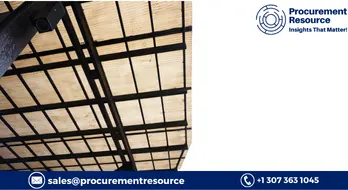Product
Polycarbonate Price Trend and Forecast
Polycarbonate Price Trend and Forecast
Polycarbonate Regionla Price Overview
Get the latest insights on price movement and trend analysis of Polycarbonate in different regions across the world (Asia, Europe, North America, Latin America, and the Middle East & Africa).
Polycarbonate Price Trend for Q2 of 2025
Asia
Polycarbonate prices in Asia remained relatively steady during the quarter. There was a temporary reduction in supply due to maintenance at some regional plants, which limited availability slightly. However, this was balanced out by continuous exports from other countries, keeping the overall supply stable.
Polycarbonate (PC) Price Chart
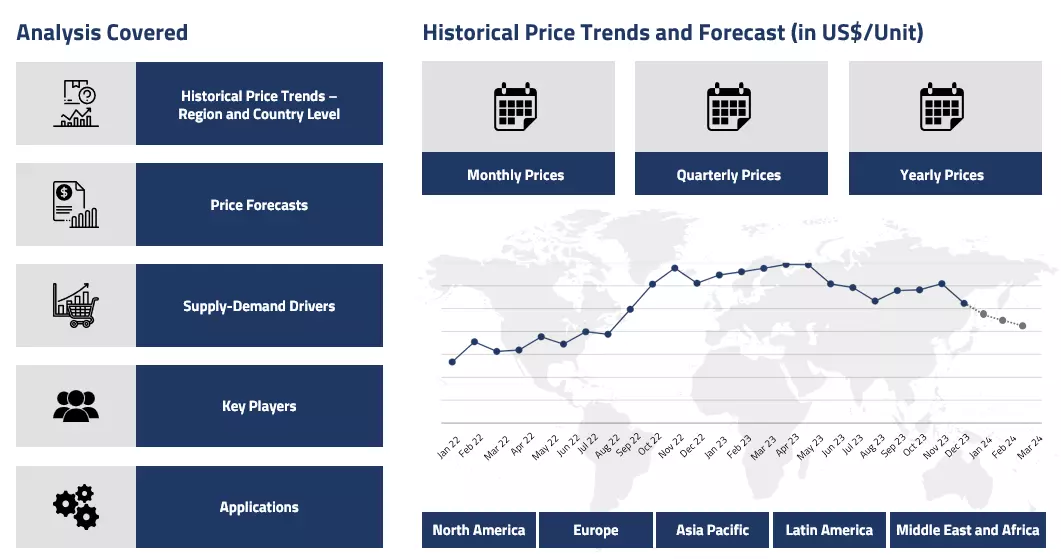
Please Login or Subscribe to Access the Polycarbonate (PC) Price Chart Data
Demand from the electric vehicle segment provided support, even as other sectors like electronics and appliances showed limited buying interest due to broader economic uncertainty. Inventories stayed under control, as most purchases were tied to contracts rather than speculative buying. This helped maintain price stability in the region.
Europe
In Europe, prices continued to decline through Q2. Supply remained high, as early-quarter stockpiling left distributors with more material than needed. Demand stayed weak, particularly from industries such as automotive and electronics, where production levels were soft. Even though energy and feedstock costs were under control and transport improved, these factors weren’t enough to support price increases. The overall market sentiment remained cautious in the said quarter.
North America
In Q2’25, Polycarbonate prices in North America moved downward consistently. The key factor was oversupply, caused by a steady rise in imports, especially from Southeast Asia. Improved efficiency at major ports allowed faster movement of goods, increasing domestic availability. Lower global shipping costs also encouraged foreign sellers to price their material more aggressively, creating stiff competition for local producers.
Although production stayed stable and raw material costs didn’t spike, local sellers faced pressure due to rising inventories and tighter profit margins. On the demand side, key sectors like automotive, electronics, and furniture reduced purchasing activity. Many buyers focused on destocking, expecting weaker demand through the summer, which further slowed down the market.
Analyst Insight
According to Procurement Resource, global Polycarbonate prices may remain under pressure unless demand picks up or significant supply adjustments occur in major markets.
Polycarbonate Price Trend for Q1 of 2025
Asia
During the first quarter of 2025, Polycarbonate prices in Asia followed a steady downward trend. Despite some plant turnarounds early in the year, production levels remained high, leading to growing inventories across the region. Demand from major industries like automotive and electronics was consistently weak, and post-holiday market activity picked up slower than expected.
Procurement remained cautious as buyers managed existing stockpiles instead of placing new orders. Meanwhile, cost support from feedstocks stayed low, forcing producers to reduce their prices to remain competitive. This created a market environment marked by oversupply and subdued demand.
Europe
In Europe, Polycarbonate prices started the quarter with relative stability due to balanced supply and demand. However, as the quarter progressed, weakening demand from key downstream industries such as electronics and automotive put pressure on the market. Although energy prices had eased slightly, it wasn't enough to counteract the impact of slow buying interest and high inventory levels. By March, the market clearly showed signs of softness, with declining prices driven by cautious restocking and a lack of new orders. Even brief disruptions in logistics early in the month couldn’t sustain momentum, and overall sentiment remained bearish.
North America
The North American market saw minor price declines through Q1’25. While early January was relatively stable, softening demand—especially in construction and export sectors—began to affect pricing mid-quarter. Supply remained steady, and producers faced challenges in maintaining margins. Competitive import offers and steady domestic production levels added to the pressure. Buyers remained conservative with purchases, influenced by broader economic uncertainties and an absence of strong downstream activity.
Analyst Insight
According to Procurement Resource, Polycarbonate prices are likely to stay under mild pressure in the near term across all regions, unless there are major changes in supply or a strong revival in demand from end-user sectors.
Polycarbonate Price Trend for Q4 of 2024
Asia
In Q4 of 2024, production in China remained high despite facility shutdowns, leading to a plentiful supply. However, major sectors such as automotive, electronics, and construction did not meet the demand expected by manufacturers.
Buyers prioritized immediate orders and waited for more favorable market conditions, refraining from committing to large purchases. Despite the traditional seasonal increase in demand, it never materialized, contributing to market stagnation. Suppliers lowered prices to stimulate more orders, but high inventory levels hindered the market's growth.
Europe
In Europe, the situation mirrored that of China. Market sentiment was dampened in the construction and automotive sectors due to economic uncertainties, resulting in low demand. Local buyers were cautious, opting to reuse smaller pieces to control costs and avoid price hikes. While raw material prices remained steady, manufacturers struggled with oversupply and slow sales. Prices stayed low as suppliers had difficulty meeting demand. Despite careful planning across the region, there was minimal market growth during the quarter.
North America
In North America, the polycarbonate sector faced challenges during Q4 of 2024. Soft demand from the automotive sector and high inventory levels led to a decrease in prices. Despite some advancements in automotive production, there was no substantial rise in polycarbonate consumption. Raw material costs remained stable, but logistical issues, such as port delays, complicated the market further. To maintain balance, manufacturers focused on inventory management rather than aggressive pricing, approaching the situation with caution. By the end of the quarter, the market remained stagnant, reflecting broader global trends.
Analyst Insight
According to Procurement Resource, the prices of polycarbonate are expected to maintain similar trends moving forward into the next year as the consumer demand remains moderate.
Polycarbonate Price Trend for Q3 of 2024
Asia
In Asia, the polycarbonate market remained largely stable throughout the quarter, with supply and demand maintaining a delicate balance. Despite an increase in production rates, particularly in September, spot prices remained at their lowest levels for the year due to oversupply in the market. Manufacturers, in response to the growing surplus, were forced to lower factory prices, putting further strain on profitability.
While raw material costs, particularly bisphenol A, stayed relatively stable, fluctuations in the prices of key feedstocks such as phenol and acetone provided only moderate cost support for polycarbonate production. The anticipated demand boost during China’s traditional peak season failed to materialize, leaving the market stagnant. The increased production capacity in China, combined with limited maintenance shutdowns, added further pressure on prices, with regional demand remaining weak.
Europe
In Europe, the polycarbonate market experienced a notable decline in prices during the third quarter, particularly in July. This was primarily driven by weak demand from key sectors, especially the automotive industry in Germany, which is a major consumer of polycarbonate. The slowdown in the European automotive market, compounded by supply chain issues and high freight costs, created a challenging environment for domestic producers.
Although freight rates provided an opportunity for local producers to leverage higher prices, competitive imports from Asia mitigated the impact of rising domestic costs, helping buyers secure materials at more favorable prices. Furthermore, the upstream crude oil market experienced a bearish trend, with falling oil prices adding to the downward pressure on polycarbonate costs. Despite a brief uptick in demand towards the end of the quarter, European polycarbonate prices remained under pressure due to the sluggish recovery in key downstream industries.
North America
In North America, the polycarbonate market displayed a more stable price trend throughout the third quarter, though there were signs of potential downward movement. The construction and automotive sectors in the U.S. showed little improvement, with stagnant demand and an oversupplied market creating a challenging pricing environment for polycarbonate manufacturers.
Feedstock prices, particularly bisphenol A, remained relatively stable but offered limited cost support. While the U.S. market remained well-supplied, competitive imports from Asia continued to exert downward pressure on domestic prices. Manufacturers faced profitability challenges due to stagnant demand and lower feedstock costs. Toward the end of the quarter, market participants began bracing for potential disruptions from an active hurricane season, which could have impacted production and prices.
Analyst Insight
According to Procurement Resource, the price trend of Polycarbonate is expected to be largely dependent on the market sentiments of its feedstock commodities.
Polycarbonate Price Trend for Q2 of 2024
| Product | Category | Region | Price | Time Period |
| Polycarbonate | Packaging | China | 2243 USD/MT | April'24 |
| Polycarbonate | Packaging | China | 2274 USD/MT | May'24 |
| Polycarbonate | Packaging | India | 2125 USD/MT to 2133 USD/MT | Q2'24 |
Stay updated with the latest Polycarbonate prices, historical data, and tailored regional analysis
Asia
In China, the price of polycarbonate saw slight improvement only in the initial phase of the market as the prices climbed from a monthly average of 2243 USD/MT from April to 2274 USD/MT in May, supported by stocking activities before the May holiday season. However, from then the market attained a stagnant stance, primarily driven by continued weakness in the feedstock bisphenol A market. The post-festival period saw little momentum, with limited activity in the upstream phenol market and a poor trading atmosphere for acetone.
This lack of positive market support for bisphenol A impacted the overall cost structure of polycarbonate. Additionally, the consumption of polycarbonate was light, focusing on maintaining production and managing existing inventory. The downstream industries reduced their operational loads, weakening their procurement enthusiasm and leading to reduced overall consumption. Additionally, the early hikes met with buyer resistance, resulting in poor demand for the commodity.
A similar trend was observed in India, too, where prices slightly improved from an average of 2125 USD/MT to 2133 USD/MT during the second quarter of 2024. The market stability was driven by the maintained stabilization of the supply and demand sectors.
Europe
The stagnation of the polycarbonate market in the European countries was driven by the pessimistic approach of consumers and rising uncertainties in the downstream industries. The lower production costs further strained the market and kept the market momentum on the lower end of the spectrum. However, the reduction of ECB’s interest rates towards the end of the quarter gave some hope to the traders and manufacturers of the commodity, but this was not translated into the pricing dynamics of polycarbonate during the second quarter of 2024.
North America
In North America, polycarbonate prices experienced a more significant decrease, driven by lower production costs and a decline in bisphenol A prices. The ongoing drop in crude oil prices added to the cost support. Despite average demand from the automobile and construction sectors, supply levels remained moderate to high, leading to a notable adjustment in Polycarbonate prices. In Mexico, the Polycarbonate market followed the global trend, with prices decreasing due to cheaper imports from the USA, Saudi Arabia, and China.
The price decline of bisphenol A further contributed to the bearish trend, along with the falling crude oil prices providing additional cost support. Demand from downstream industries, including the automobile and construction sectors, remained average, with moderate to high supply levels. As a result, the price of polycarbonate in Mexico reflected these influences.
Analyst Insight
According to Procurement Resource, the price of Polycarbonate is expected to trail the momentum of its feedstock commodities in the upcoming quarters.
Polycarbonate Price Trend for Q1 of 2024
| Product | Category | Region | Price | Time Period |
| Polycarbonate | Packaging | China | 2213 USD/MT | January 2024 |
| Polycarbonate | Packaging | China | 2239 USD/MT | March 2024 |
| Polycarbonate | Packaging | India | 2060 USD/MT | January 2024 |
| Polycarbonate | Packaging | India | 2111 USD/MT | March 2024 |
Stay updated with the latest Polycarbonate prices, historical data, and tailored regional analysis
Asia
The polycarbonate market performance was quite mixed in the Asian region during the first quarter of 2024. In the Chinese market, the monthly average prices went from about 2213 USD/MT in January’24 to around 2239 USD/MT in March’24. This introduced a marginal uptick in the Chinese domestic price graph for polycarbonate. A stable and almost equal supply and demand outlook maintained the healthy exchange between the suppliers and consumers.
Since the crude oil and energy prices also picked up in the region after OPEC+ announced a decline in the output volumes, the upstream manufacturing and processing costs increased, exerting upward pressure on the prices. Similarly, in the Indian market, the monthly average prices went from about 2060 USD/MT in January’24 to around 2111 USD/MT in March of 2024.
This imparted a 2% growth on the domestic price trajectory. The rising production costs pushed the prices up, but the humble downstream demands counterbalanced the approach. Because of this, these subtle and marginal increments were seen in the regional price trend.
Europe
Polycarbonate remained on a positively inclined price trajectory in the European markets. Since it is capaciously consumed in the production of various electronic components, automobiles, and construction pieces, the downstream factors and pricing fundamentals also vary greatly as per the market demands. Notable surges in the feedstock bisphenol A prices also raised the price trend. During the discussed span, a swift depreciation in the Euro value was noticed against the US Dollar, which further supported the upstream costs. With both upstream and downstream factors supporting the market fundamentals, the price graph inclined for the entire duration of Q1’24.
North America
The American polycarbonate market could not behave any differently than its Asian and European counterparts as the prices were found to be inclining here as well. Primarily it was the incline in the energy and crude oil prices that raised the production and processing costs. These factors pulled the polycarbonate prices up during the said period of Q1’24. Downstream demands, though, were not equally inclined and were positive enough to support the price trend. Overall, positive market performance was witnessed.
Analyst Insight
According to Procurement Resource, Polycarbonate price trends are likely to continue rising in the coming months since the current supply and demand dynamics project a healthy outlook.
Polycarbonate (PC) Price Trend for Q4 (October - December) of 2023
Asia
Polycarbonates are very generously used in the manufacturing of electronic components, construction materials, automobiles, aircraft, etc.; hence, demands from these downstream sectors guide the polycarbonate market trend. During the final quarter of the year 2023, polycarbonate prices fluctuated as per the market demands.
The first half of the quarter witnessed a rise in the pricing trajectory as the monthly average prices in the Indian polycarbonate market grew by approximately 2% from October to November’23. However, the long holiday season pivoted the market trajectory downhill. Prices in the Indian market shifted from about 2065 USD/MT in October to about 2040 USD/MT in December of 2023. Overall, mixed market sentiments were observed.
Europe
Despite the freight disturbances, the European polycarbonate industry was observed to be growing during the given period of Q4’23. A rise in demands from the consumer electronics and automobile sector pushed the price trend positively during the said quarter.
North America
The American polycarbonate market wavered heavily during the last quarter of the year 2023. The market demands took a hit because of the long holiday season in the latter part of the quarter, causing the market trend to waver; however, the prices consolidated by the end of the discussed span. Borderline buoyancy was observed in the polycarbonate price trend.
Analyst Insight
According to Procurement Resource, given the current inventory and demand conditions, the Polycarbonate price trend are likely to waver in the coming months; narrow-range fluctuations are anticipated.
Polycarbonate Price Trend for Q3 (July - September) of 2023
Asia
The incline in the cost of raw materials and stable pace of demand from the downstream industries supported the rise in the polycarbonate price trend during the initial phase of the third quarter. In addition to this, the rise in the prices of crude oil raised the all over production cost of polycarbonate and helped in the inclination of polycarbonate price graph. Further, the downstream construction and automotive sectors also enjoyed the surge in their sales figures and, in turn, supported the rise in polycarbonate prices.
Europe
In European countries, the polycarbonate price trend remained weak during the first months of the third quarter. During this phase, the market suffered the ill consequences of rising inflationary pressure and the limited appetite of consumers. Further, the number of inquiries and orders from the majority of downstream industries also remained on the lower end, leading to the southward movement of the polycarbonate price graph. However, in September, the market showed some signs of recovery, and even the stockpiles of polycarbonate started to decline with the improvement in the procurement rates of downstream industries.
North America
In North America, the polycarbonate price index depleted gradually in the third quarter of 2023. The major cause of the feeble performance of this sector was the fall in the number of new orders and the decline in the spending appetite of the consumer sector.
Consumer sentiments were hurt by the rise in inflation and interest rates charged by banks. The slowed demand for polycarbonate was well countered by sufficient inventories. In addition to this, the fall in construction activities and disruptions in the supply chains also had an adverse effect on the growth of polycarbonate prices.
Analyst Insight
According to Procurement Resource, the price trend of Polycarbonate are expected to continue their declining journey due to poor demand and a rise in the level of inventories.
Polycarbonate Price Trend for the First Half of 2023
Asia
Polycarbonate price trend observed a wavering pattern in the first half of 2023. The spot prices averaged around 17400 RMB/MT in January and went to around 14766 RMB/MT in June’23 in the Chinese domestic market. Despite the bearish demands from the downstream sector, the feedstock Bisphenol A and Acetone prices remained stable. The positive feedstock prices supported the production costs, which helped maintain the market dynamics, yet the overall trend was declining. The feedstock prices provided the necessary support and did not let the market crash.
Europe
The European market witnessed a mixed price trend for Polycarbonate in H1 2023. Initially, the prices inclined but dropped going forward, given the dampened demands. As the inventory stocks overflowed and feedstock prices decreased, polycarbonate prices fell across Europe.
North America
The US domestic market witnessed a declining curve for polycarbonate prices. The over-saturated markets amid feverish demands could not sustain such high prices and subsided. Further, the hiked interest rates and failure of major banks negatively impacted consumer confidence in the market, causing baulking of potential buyers from the market.
Analyst Insight
According to Procurement Resource, polycarbonate prices are expected to remain volatile in the upcoming quarter. The lowered market offtakes and overstocked inventors will continue to plague the price trend for Polycarbonate in the global markets.
Procurement Resource provides latest prices of Polycarbonate. Each price database is tied to a user-friendly graphing tool dating back to 2014, which provides a range of functionalities: configuration of price series over user defined time period; comparison of product movements across countries; customisation of price currencies and unit; extraction of price data as excel files to be used offline.
About Polycarbonate
Polycarbonates, usually abbreviated as PC, belong to a group of thermoplastic polymers. They contain carbonate groups in their chemical structures. Polycarbonates are often utilised in engineering as they are strong and tough materials and some of its grades are optically transparent as well. They can also be easily moulded and thermoformed.
Polycarbonate Product Details
| Report Features | Details |
| Product Name | Polycarbonate |
| Industrial Uses | Electronic Components, Construction Materials, Automotive, Aircraft and Security Components |
| Supplier Database | Covestro AG, SABIC, Teijin Limited, Trinseo S.A., Mitsubishi Chemical Corporation (Mitsubishi Engineering-Plastics Corp.) |
| Region/Countries Covered | Asia Pacific: China, India, Indonesia, Pakistan, Bangladesh, Japan, Philippines, Vietnam, Iran, Thailand, South Korea, Iraq, Saudi Arabia, Malaysia, Nepal, Taiwan, Sri Lanka, UAE, Israel, Hongkong, Singapore, Oman, Kuwait, Qatar, Australia, and New Zealand Europe: Germany, France, United Kingdom, Italy, Spain, Russia, Turkey, Netherlands, Poland, Sweden, Belgium, Austria, Ireland Switzerland, Norway, Denmark, Romania, Finland, Czech Republic, Portugal and Greece North America: United States and Canada Latin America: Brazil, Mexico, Argentina, Columbia, Chile, Ecuador, and Peru Africa: South Africa, Nigeria, Egypt, Algeria, Morocco |
| Currency | US$ (Data can also be provided in local currency) |
| Supplier Database Availability | Yes |
| Customization Scope | The report can be customized as per the requirements of the customer |
| Post-Sale Analyst Support | 360-degree analyst support after report delivery |
Note: Our supplier search experts can assist your procurement teams in compiling and validating a list of suppliers indicating they have products, services, and capabilities that meet your company's needs.
Polycarbonate Production Process
- Production of Polycarbonate via Bisphenol A and Carbonyl Chloride via Condensation Polymerisation; and via Bisphenol A and Diphenyl Carbonate
While preparing Polycarbonate from bisphenol A and carbonyl chloride through the process of condensation polymerisation, a solution of bisphenol A in sodium hydroxide is produced, which is then combined with carbonyl chloride dissolved in an organic solvent. Further, the polymerisation reaction is carried out in the presence of a catalyst to obtain Polycarbonate as the final product.
Methodology
The displayed pricing data is derived through weighted average purchase price, including contract and spot transactions at the specified locations unless otherwise stated. The information provided comes from the compilation and processing of commercial data officially reported for each nation (i.e. government agencies, external trade bodies, and industry publications).
Assistance from Experts
Procurement Resource is a one-stop solution for businesses aiming at the best industry insights and market evaluation in the arena of procurement. Our team of market leaders covers all the facets of procurement strategies with its holistic industry reports, extensive production cost and pre-feasibility insights, and price trends dynamics impacting the cost trajectories of the plethora of products encompassing various industries. With the best analysis of the market trends and comprehensive consulting in light of the best strategic footstep, Procurement Resource got all that it takes.
Client's Satisfaction
Procurement Resource has made a mark for itself in terms of its rigorous assistance to its clientele. Our experienced panel of experts leave no stone unturned in ensuring the expertise at every step of our clients' strategic procurement journey. Our prompt assistance, prudential analysis, and pragmatic tactics considering the best procurement move for industries are all that sets us apart. We at Procurement Resource value our clients, which our clients vouch for.
Assured Quality
Expertise, judiciousness, and expedience are the crucial aspects of our modus operandi at Procurement Resource. Quality is non-negotiable, and we don't compromise on that. Our best-in-class solutions, elaborative consulting substantiated by exhaustive evaluation, and fool-proof reports have led us to come this far, making us the ‘numero uno' in the domain of procurement. Be it exclusive qualitative research or assiduous quantitative research methodologies, our high quality of work is what our clients swear by.
Related News
Table Of Contents
Our Clients
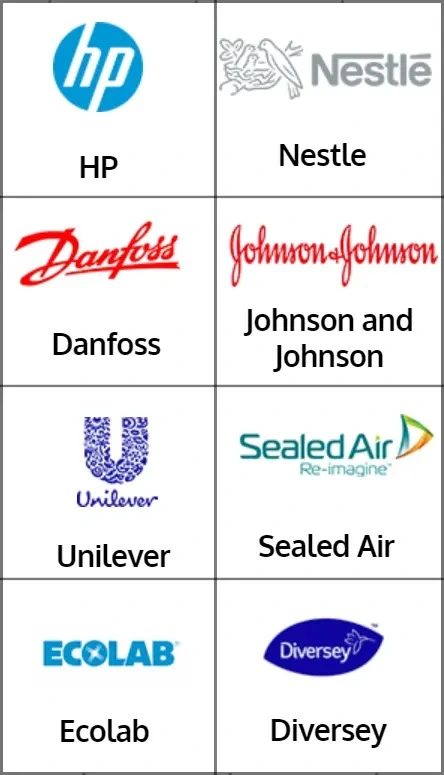
Get in Touch With Us
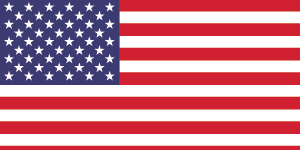
UNITED STATES
Phone:+1 307 363 1045
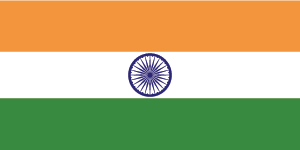
INDIA
Phone: +91 8850629517
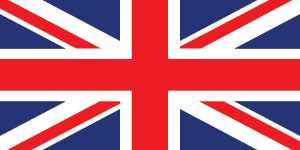
UNITED KINGDOM
Phone: +44 7537 171117
Email: sales@procurementresource.com


